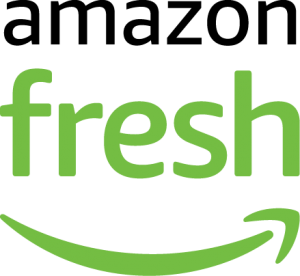Elmhurst 1925 Brings Seasonal Collection Back Again
 Elmhurst 1925, maker of the world’s finest plant-based dairy products, announces the return of its seasonal collection of fan-favorite products: Apple Pie Spice Blend, Pumpkin Spice Oat Creamer and OatNog. These limited-edition flavors are now available for purchase as shoppers gear up for the holiday season.
Elmhurst 1925, maker of the world’s finest plant-based dairy products, announces the return of its seasonal collection of fan-favorite products: Apple Pie Spice Blend, Pumpkin Spice Oat Creamer and OatNog. These limited-edition flavors are now available for purchase as shoppers gear up for the holiday season.
Elmhurst 1925’s Apple Pie Spice Blend starts with a creamy oat-cashew base infused with notes of baked apple and flaky pie crust. Barista-approved for crafting the perfect plant-based latte, Apple Pie Spice performs beautifully in hot or iced coffee, and even shines in hot applications like baking. Another fall must-have, Elmhurst’s Pumpkin Spice Oat Creamer, is a simple dairy-free option for adding a touch of cozy sweetness to coffee or tea, with just 1 gram of sugar and 15 calories per serving. And for the winter season, Elmhurst is reintroducing a festive favorite – OatNog! This vegan twist on the holiday classic is crafted with the simplest ingredients and can be sipped on its own, frothed into coffee or hot chocolate, or even spiked with your choice of liquor for holiday cocktails. True to Elmhurst’s clean-label promise, these seasonal treats are made without added gums, oils, or emulsifiers. Available for a limited time, they’ll be on shelves alongside Elmhurst’s core lines of Plant Milks and Creamers.
“Year after year, our customers eagerly await the return of these popular, limited-edition flavors, which made it an easy decision to offer them once again,” said Heba Mahmoud Senior Director of Brand Innovation at Elmhurst. “Fall and winter are a time to indulge in our favorite seasonal treats, and we wanted plant-based consumers to be able to partake without sacrificing flavor or texture. These better-for-you, clean-label alternatives to classic holiday flavors enable everyone to savor the season without the usual sugary syrups, gums or oils found in other seasonal offerings.”
Last year, 46% of consumers purchased fall-flavored food and beverage products and that number is continuing to rise, with more and more companies creating fall flavored products. As consumers prioritize exceptionally made, clean-label products, the brand’s seasonal flavor offerings are perfect for indulging without any sugar-coated guilt.
With roots as a former dairy, Elmhurst’s standards are high when it comes to how plant-based beverages should taste. This is why the brand has expertly selected the simplest ingredients to get these fan-favorite flavors just right, so dairy-free drinkers don’t miss out on any of the fun this season. Indulgent holiday classics consumers can feel good about, Apple Pie Spice Seasonal Blend, OatNog and Pumpkin Spice Oat Creamer are unbelievably creamy, flavor-packed, never diluted, plant-based options with minimal sugar. Known to satisfy even the most passionate dairy-lovers, the three seasonal varieties are crafted with no more than six simple ingredients.
– Apple Pie Spice Seasonal Blend: Enjoy the warm flavors of apple pie with no baking required. Elmhurst’s thoughtfully crafted Apple Pie Spice Blend delivers the classic flavor with just six wholesome ingredients, including dreamy whole grain oats and cashews. Now available exclusively in stores for fall sipping at an SRP of $6.99 (32 fl. oz.)
– Pumpkin Spice Oat Creamer: Celebrate autumn with this delectable limited-edition creamer. At just 15 calories, it’s crafted with whole grain oats and a touch of cane sugar for the perfect sweetness, and free from gums and oils. Enjoy a velvety, creamy texture that brings the taste of autumn to your cup all season long. Now available exclusively in stores at an SRP of $5.99 (16 fl. oz.)
– OatNog: Get into the holiday spirit with this plant-based nog, guaranteed to make your season bright. Made with whole grain oats, buttery cashews, and cozy holiday spices, it’s so luxuriously creamy and rich, you’ll be amazed it’s dairy-free. Now available at an SRP of $6.99 (32 fl. oz.)
Like all Elmhurst products, the seasonal collection is Non-GMO Product Verified, gluten-free, dairy-free, OU Kosher, vegan, and crafted through the company’s unique HydroRelease™ method. Using just water, this process separates the nutritional components of a nut, grain or seed before reassembling them as a creamy plant milk, maintaining the full nutrition of the source ingredient without added gums or emulsifiers. HydroRelease™ upcycles any waste into energy and is powered by 100% renewable Hydroelectric Power to drive sustainability every step of the way.
As a part of Elmhurst’s ongoing recycling program, currently saving approximately 10,000 mature trees annually, all cartons are 100% recyclable and made from FSC-certified paperboard. The brand transitioned from plastic to paper-based shipping materials for direct-to-consumer orders and uses primarily PCR materials for molded fiberboard trays and scrap corrugate as protective filler.
Apple Pie Spice Blend is now available nationwide in Sprouts, Whole Foods Market, World Market, Fresh Thyme, Haggen, Tops and New Seasons Market stores as well as online through Fresh Direct at an SRP of $6.99. Pumpkin Spice Oat Creamer is now available nationwide at Sprouts, The Fresh Market, World Market, Earth Fare, and Tops stores at an SRP of $5.99. OatNog is now available online at Elmhurst1925.com, and will be available later this season through Fresh Direct as well as at Sprouts, Whole Foods, Wegmans, The Fresh Market, Fresh Thyme, World Market, Earth Fare, Jewel Osco, Haggen, Tops and New Seasons Market stores at an SRP of $6.99. To learn more about Elmhurst’s plant-based milks, please visit www.elmhurst1925.com.
Elmhurst 1925 makes simple, nutritious, and incredibly delicious plant-based dairy products. Elmhurst was founded in 2017, but the company’s roots date back to 1925. Originally Elmhurst Dairy, the multigenerational, family-run organization operated for almost a century under Max Schwartz and son Henry. After a meeting with plant nutrition pioneer, Dr. Cheryl Mitchell, Henry made a progressive pivot and decided to close his famous dairy plant and found Elmhurst Milked. All Elmhurst plant milks are created through a unique HydroRelease™ method, which uses water to harness the full nutritional content of raw nuts, grains, and seeds. Nutrients are separated and recombined naturally to form a smooth, creamy beverage without the use of added gums or stabilizers. All Elmhurst varieties have six ingredients or less, no added gums or emulsifiers, and up to four times as many nuts as other leading brands. To learn more about Elmhurst, please visit www.elmhurst1925.com, or find us on Facebook and Instagram.
For more news of interest to the dairy industry, subscribe to Gourmet News.
Fortune Names Publix Among Best Workplaces for Women
 Publix has been named on the 2024 Fortune’s Best Workplaces for Women list.
Publix has been named on the 2024 Fortune’s Best Workplaces for Women list.
“Publix is dedicated to creating an inclusive work culture where all associates feel valued,” said Publix Vice President of Associate Experience Marcy Benton. “When we embrace diversity, we help empower our associates to reach their full potential.”
In a survey conducted by Great Place to Work, women were asked about experiences in their workplace, including how their gender shapes those experiences. Great Place to Work then analyzed trends based on organizations’ size, industry and region.
To read more about Publix’s ranking and see Fortune’s Best Workplaces for Women list, visit greatplacetowork.com/best-workplaces/women/2024.
Publix, the largest employee-owned company in the U.S. with more than 255,000 associates, currently operates 1,382 stores in Florida, Georgia, Alabama, Tennessee, South Carolina, North Carolina, Virginia and Kentucky. For 27 consecutive years, the company has been recognized by Fortune as a great place to work.
In addition, Publix’s dedication to superior quality and customer service is recognized among the top in the grocery business. For more information, visit the company’s newsroom at corporate.publix.com/newsroom.
For more news of interest to the grocery industry, subscribe to Gourmet News.
Amazon’s Hoggett Announces Departure From Company
 Tony Hoggett, Amazon’s senior vice president of Worldwide Grocery Stores, announced on his LinkedIn account Friday, Oct. 25, that he was leaving the company.
Tony Hoggett, Amazon’s senior vice president of Worldwide Grocery Stores, announced on his LinkedIn account Friday, Oct. 25, that he was leaving the company.
“After nearly three years at Amazon, it’s time for the next step in my career,” he wrote. “My time at Amazon has been incredible, and I’m grateful to my colleagues for their support, guidance and friendship. I’m optimistic about the work Amazon is doing to improve the grocery shopping experience for customers, and have no doubt the teams will keep the momentum going in my absence. I’ll be cheering you all on.”
Many of the comments left on his post asked why he was leaving and where he was going, but Hoggett didn’t respond to them.
Three days before his post, Hoggett announced a pilot program for fresh grocery deliveries.
“We recently announced the launch of a new pilot in Phoenix where customers can shop fresh groceries alongside millions of general merchandise products, all delivered together in just hours,” he wrote. “Get organic ingredients from Whole Foods Market 🍎, affordable snacks from Amazon Fresh 🍪, and even socks from Amazon.com 🧦 —all in one order.”
The week before, he congratulated his team for the opening of a small-format store with Whole Foods Market.
“Exciting news in Chicago as we test a small-format store from Amazon under the same roof as Whole Foods Market in the One Chicago building!” he wrote. “Customers can now shop their favorite natural and organic brands while also quickly topping up their groceries with a larger assortment of favorite national brands, grab-and-go meals, and household essentials—all in one trip. Congratulations to the entire team on this opening!”
Hoggett joined Amazon two years and 10 months ago, according to his profile, after 31 years at British supermarket chain Tesco as group chief strategy and innovation officer and as group chief operating officer.






